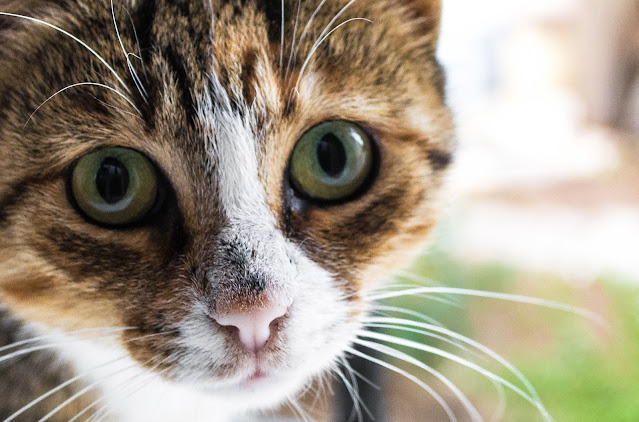A comprehensive guide: what is fip in cats?
FIP Diagnosis
Feline Infectious Peritonitis (FIP) is a devastating disease that affects cats worldwide. It is caused by a coronavirus infection and can be difficult to diagnose due to its varied clinical presentation. Veterinarians use a combination of tests and examinations to diagnose FIP in cats.
The primary diagnostic tool for FIP is the detection of specific antibodies in the blood or fluid samples. It is important to note that the presence of antibodies alone does not confirm FIP, as these antibodies can also be found in healthy cats. Therefore, additional tests such as polymerase chain reaction (PCR) or immunohistochemistry (IHC) may be necessary to confirm the diagnosis.
FIP Causes
It is important to note that not all cats infected with the feline enteric coronavirus will develop FIP. The factors that contribute to the mutation of the virus and the development of FIP are not fully understood, but it is believed to involve a combination of genetic predisposition and environmental triggers.
FIP Symptoms
The symptoms of FIP can vary depending on the form of the disease. There are two main forms of FIP: the wet form and the dry form.
The wet form is characterized by the accumulation of fluid in the abdomen or chest cavity. Cats with the wet form of FIP may exhibit symptoms such as weight loss, loss of appetite, fever, lethargy, difficulty breathing, and a swollen abdomen.
On the other hand, the dry form of FIP is characterized by the formation of granulomas or small nodules in various organs, including the liver, kidney, and intestine. Cats with the dry form of FIP may exhibit symptoms such as weight loss, jaundice, vomiting, diarrhea, neurologic abnormalities, and increased thirst.
Feline Infectious Peritonitis
Feline Infectious Peritonitis (FIP) is a viral disease that affects domestic and wild cats. It is caused by a coronavirus that can be transmitted through direct contact with an infected cat or through contact with contaminated surfaces or objects. FIP can affect cats of all ages, but it is most common in young kittens and cats with weakened immune systems.
Once a cat is infected with the coronavirus, the virus replicates in the intestines and can be shed in the feces. In some cats, the virus may mutate and spread throughout the body, leading to the development of FIP. The exact mechanism of how this mutation occurs is not fully understood, but it is believed to involve a complex interplay between the virus, the cat’s immune system, and genetic factors.
FIP in Cats
FIP is a devastating disease that can have serious consequences for affected cats. The prognosis for cats with FIP is generally poor, and the disease is often fatal. Treatment options for FIP are limited, and there is currently no cure for the disease. However, supportive care can be provided to help alleviate symptoms and improve the cat’s quality of life.
It is important for cat owners to be aware of the signs of FIP and to seek veterinary care if their cat exhibits any concerning symptoms. Early detection and intervention can help improve the cat’s chances of survival and may provide opportunities for experimental treatments or clinical trials.
FIP Treatment Options
As mentioned earlier, there is currently no cure for FIP. However, there are some treatment options that can help manage the disease and provide supportive care for affected cats.
Supportive care may include medications to reduce inflammation, manage pain, and improve the cat’s overall well-being. Additionally, nutritional support and fluid therapy may be necessary to maintain the cat’s hydration and nutritional status.
In recent years, there has been some research into potential antiviral drugs and immunomodulatory therapies for the treatment of FIP. These treatments aim to inhibit viral replication or modulate the cat’s immune response to the virus. However, these treatment options are still considered experimental and are not widely available.
What is FIP in Cats?
Feline Infectious Peritonitis (FIP) is a complex and devastating disease that affects cats worldwide. It is caused by a mutation of the feline enteric coronavirus and can lead to a variety of clinical signs and symptoms. FIP is challenging to diagnose due to its varied presentation and limited treatment options. The disease can have a significant impact on affected cats and their owners, both emotionally and financially.
What is FIP in Cats Symptoms?
The symptoms of FIP can vary depending on the form of the disease and the organs involved. Some common signs of FIP in cats include weight loss, loss of appetite, fever, lethargy, difficulty breathing, abdominal swelling, jaundice, vomiting, and diarrhea. Cats with neurological involvement may exhibit additional symptoms such as seizures, ataxia, and behavioral changes.
It is important to note that these symptoms can be seen in other diseases as well, and their presence does not necessarily indicate FIP. If your cat is exhibiting any of these symptoms, it is essential to consult with your veterinarian for a thorough evaluation and appropriate diagnostic testing.
What is FIP in Cats UK?
Feline Infectious Peritonitis (FIP) is a global issue that affects cats in the United Kingdom as well. The disease can occur in cats of all ages, but it is most common in young kittens and cats with weakened immune systems. FIP is a challenging disease to manage, and its diagnosis and treatment require the expertise of a veterinarian.
In the UK, veterinary clinics and research institutions are actively studying FIP and working towards a better understanding of the disease. They are involved in research projects and clinical trials aimed at improving the diagnosis, treatment, and prevention of FIP in cats. The knowledge gained from these efforts can help not only cats in the UK but also cats around the world.














